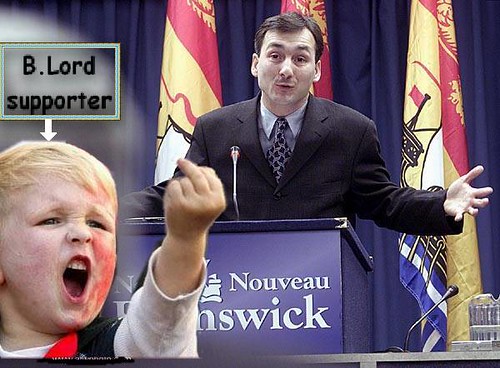

ADHD: are drugs the answer?
Written by Kieren McCarthy
Child prescriptions for the behavioural drug Ritalin rocketed again in the UK last year. But is this down to wider treatment of attention disorders, or a more disturbing trend of keeping kids under control with psychoactive drugs?
Impulsiveness, restlessness and hyperactivity, as well as inattentiveness are symptoms of ADHD and often prevent children from learning and socialising well.
Figures from the Department of Health show that in 2002, approximately 208,000 prescriptions were issued for the drug Ritalin – an amphetamine given in tablet form – in order to tackle attention deficit hyperactivity disorder (ADHD). This was up from 158,000 in 1999, 127,000 in 1998 and 92,000 in 1997.
Despite tough guidelines from the National Institute for Clinical Excellence (NICE) for the prescription of Ritalin, its escalating use in UK kids shows no sign of abating. But is this because we are recognising and treating a larger number of children with behavioural problems – or is it that the temptation to control unruly or disruptive children by giving them a simple pill has proved too seductive?
Sit up and pay attention
There is little doubt that some children have attention disorders. It is a loosely defined condition, identified by observable symptoms such as inattention, hyperactivity and impulsiveness.
While these behaviours are observable in all children at some point, some possess them so regularly and to such a high degree that it impairs their natural development. Untreated, such behavioural problems can lead to low self-esteem, emotional and social problems and educational under-performance.
There is also little doubt that drugs such as Ritalin have a fast and noticeable effect on those with attention disorders. The few studies that have been done in this area all point to the use of psychoactive drugs as an extremely effective way of tackling the problem and better than other more traditional methods, such as a change in diet or behavioural therapy.
However, the experience of the drug in the US has caused wide concern. Critics say it is over-prescribed and is actually damaging children at an important and vulnerable period of their development. Tabloid stories abound that the drug is turning kids into zombies – but with prescription levels in some schools running at more than 30 per cent, the question over whether Ritalin has become a shortcut to dealing with overactive kids is a valid one.
It is not one that Andrea Bilbow – founder of Attention Deficit Disorders Information Services (ADDISS) – has any doubts over, however. 'The increase in numbers has been over-exaggerated greatly,' she says – explaining that because of monthly prescription renewals, the number of prescriptions issued should be divided by 12 to find out how many children are actually taking Ritalin. 'This is a condition that has been ignored for many years, but as doctors become more aware, more children are diagnosed,' she says.
Andrea says there are anywhere between 350,000 and 400,000 children in the UK with ADHD, yet only 28,000 to 30,000 of them have been diagnosed so far. With that assumption, Ritalin and similar drug prescriptions will continue to increase for some time until it reaches all the children who would benefit from its use.
This is certainly the case in the US where, on average, 4 per cent of children take the drug. However, while attention deficit disorders are known to be evenly distributed across communities, races and social levels, a recent US study showed prescription levels varied hugely across the country – suggesting that prescription of the drug is affected by many more factors than diagnosis of ADHD.
US levels are between 10 and 30 times higher than in the UK because of official guidelines for prescribing. But while these guidelines are widely respected and followed, they are not binding and doctors are free to prescribe as they wish. While we have yet to approach anywhere near the same levels as the US, the increases every year worry many.
What is Ritalin?
Ritalin is a stimulant – an amphetamine – which may seem an odd choice for dealing with children who are hyperactive. However, it works by spurring children to take more interest in the things around them. With this interest satisfied, children are far less likely to become bored and restless, and so conversely are able to concentrate and don’t feel the need to act impulsively to keep themselves stimulated.
But, disturbingly, one study found that the effect of the drug itself on the mind is comparable with the effect of cocaine. While cocaine is taken very quickly into the bloodstream and provides a sudden hit, Ritalin is swallowed in tablet form and so works over a much longer period. The hit isn’t there, but the effects – and the side effects – are, it seems.
Advocates for the drug argue that the worst side effects Ritalin causes are loss of appetite, insomnia and headaches, but that they reduce over time. Any other problems can be solved by reducing the dose. Opponents, however, say the drug makes kids robotic, lethargic, withdrawn and depressed.
Dr Peter Breggin, a psychiatrist at the International Center for the Study of Psychiatry and Psychology, in the US, is an outspoken critic of Ritalin. He says that the drug, far from helping, actually causes damage to the brain of a developing child by decreasing blood flow.
'Ritalin does not correct biochemical imbalances – it causes them,' he says, further alleging that negative research results are being suppressed to protect the enormous profits from the sale of the drug.
Glass houses
But Andrea dismisses this argument. 'There are only about two professionals in the whole of America that think this is a bad thing,' she says. As for the accusation that parents are somehow happy to drug their kids for an easy life, Andrea is furious. 'People in glass houses shouldn’t throw stones. Parents are very angry about the negativity around this – these parents love their children and want what is best for them.'
The problem with both arguments is that there remains surprisingly little evidence to point one way or the other. The drug itself has been around for a relatively short time, meaning that any long-term effects are still unknown. And while doctors, psychiatrists and parents are bound to be extremely concerned about giving children daily doses of drugs, so far the only firm evidence we do have is that the treatment works.
When a drug could change your life and that of your child right now, would you be prepared to wait until scientific papers tell you it’s okay? Andrea has certainly decided. 'When you see how thousands of children’s lives are transformed, how can you deny them that help?'
Further information
ADDISS: www.addiss.co.uk
Wednesday, March 29, 2006
MY GOD??? BERNARD LORD POLICY TO DRUG AND KILL OUR CHILDREN IS NOW IN ENGLAND????
Subscribe to:
Post Comments (Atom)

1 comment:
I still can't pay attention most of the time but I am really creative when I have a canvas and some brushes and paint.That is my true happiness.
People give kids drugs because they can't keep up with there wonderful fast moving minds.
Thank god for me that when I was young I didn'r end up on ritalin.I wouldn't have been able to paint a masterpiece...Let the children go free!
Post a Comment